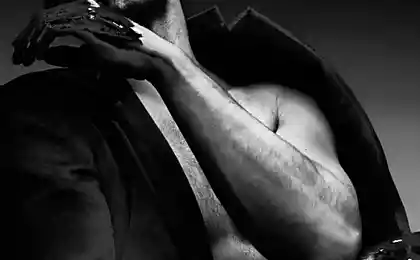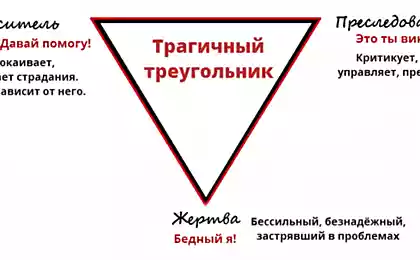302
8 Signs That Indicate You Are In A Victim Condition

The victim state is an invisible prison we create for ourselves.
Ecology of life. Psychology: The state of the victim prevents a person from becoming happy. In a life filled with negative emotions, it is difficult to find a way to self-realization and inner harmony. Many people find themselves captive to their own attitudes, without even realizing that they are wearing the invisible shackles of the victim.
To feel like a victim is to see the world through the prism of helplessness, where external circumstances and other people control your life, and you are only passively floating with the flow, without the ability to change anything.
1. Shifting responsibility to others
The main sign of the mentality of the victim is the unwillingness to take responsibility for what is happening in his life. A person is convinced that their problems are caused by external circumstances, the behavior of other people or adverse conditions.
2. Constant complaints and negativism
The victim has an almost insurmountable need to complain. It becomes a way to communicate with the world and get attention from others.

Chronic complaints - a verbal manifestation of the mentality of the victim
3. Feeling helpless and powerless
The victim’s position is characterized by a deep belief in their own helplessness in the face of life’s challenges. A person perceives himself as a passive participant in his own life, who cannot influence what is happening.
Helplessness becomes a self-fulfilling prophecy: the more a person believes in their inability to change the situation, the less action they take.
4. Envy and Comparison with Others
The victim constantly compares himself with others, and this comparison is always not in his favor. They focus on what others have and ignore their own achievements and resources.
5. Belief in your own exceptional failure
Victims often develop a unique sense of “particular failure”—the belief that it is their fate that is most dramatic and unfair. This perception creates a kind of filter: a person notices and remembers negative events, ignoring positive ones.
6. Emotional blackmail and manipulation
The person in the victim position often unknowingly uses emotional blackmail and manipulation to gain attention, help, or control.
7. Procrastination and fear of action
The condition of the victim is often accompanied by chronic procrastination and avoidance of active actions.
The main causes of procrastination in the victim state:
- Fear of failure: If a person is certain of failure, inaction seems safer.
- Fear of success: Success requires accepting responsibility, which the victim avoids.
- Comfort of predictability: Even a negative but familiar situation may seem safer than the unknown.

Fear of action is one of the main obstacles to change.
8. Impairment of support and assistance
A person in a victim position often seeks help and support at the same time, but devalues and rejects them when they receive it. This phenomenon is explained by the need to maintain the victim’s own identity.
The Path to Liberation: How to Get Out of Victimhood
Knowing that you are a victim is already 50% of your success. The remaining 50% is about working on yourself.
1. Take full responsibility for your life.
Moving from external to internal locus of control requires a conscious decision to take responsibility for your reactions, choices, and actions.
2. Develop awareness
Mindfulness practice helps you notice the moments when you slip into the victim position.
3. Change the internal dialogue
Our inner dialogue shapes our perception of reality. People in a victim state often have conversations full of helplessness and doom.
The transformation of victim thinking:
- Instead: "Why does this always happen to me?"
Ask: “What can I learn from this situation?” - Instead: "There's nothing I can do about it."
Ask: “What options do I have? ?
4. Practice gratitude.
Regularly practicing gratitude is a powerful tool for reprogramming the brain to find positive aspects of life.
5. Act despite your fear
Getting out of victimhood requires action, even when fearful and insecure. Start with small steps, gradually expanding your comfort zone.
Conclusion
The victim state is not a sentence, but a habitual way of interacting with the world that can be changed through awareness and consistent practice. Moving from being a victim to being the creator of your own life is a process that takes time and effort, but the result is worth every minute of working on.
Glossary of terms
Location of control
A psychological concept that reflects how a person perceives the source of control of his life: the external locus means the belief that life is controlled by external factors, the internal - that a person determines his own fate.
Learned helplessness
A psychological state in which a person who repeatedly encounters unfavorable situations that he cannot control subsequently makes no attempt to improve his situation, even when the opportunity arises.
Mindfulness (Mindfulness)
Psychological practice of directing attention to the present moment with and without condemnation of arising thoughts, emotions and bodily sensations.
Emotional blackmail
A form of manipulation in which one person causes another to experience negative emotions (guilt, fear, pity) in order to get a certain behavior from him.























